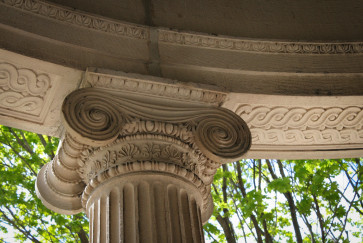Northwestern University professors Ann Bradlow and Erik Luijten have been selected as 2023 fellows of the American Association for the Advancement of Science (AAAS), the largest general scientific society in the world.
The 2023 class of AAAS Fellows includes 502 scientists, engineers and innovators spanning 24 scientific disciplines, recognized for their scientifically and socially distinguished achievements.
AAAS Fellows will be honored in Washington, D.C., in September.
“As we celebrate the 150th anniversary of the AAAS Fellows, AAAS is proud to recognize the newly elected individuals,” said Sudip S. Parikh, CEO of AAAS and executive publisher of the Science family of journals. “This year’s class embodies scientific excellence, fosters trust in science throughout the communities they serve, and leads the next generation of scientists while advancing scientific achievements.”
Ann Bradlow
Ann Bradlow is the Abraham Harris Professor of Linguistics in the Weinberg College of Arts and Sciences. She served as chair of the department of linguistics from 2007 to 2015.

Bradlow’s research focuses on the sound structure of language. She is founder and principal investigator of the Speech Communication Research Group at Northwestern, an interdisciplinary research program in acoustic phonetics and speech perception with a focus on the impact of long-term linguistic experience on speech production and perception.
Pioneering work from the Speech Communication Research Group has identified both language-specific and language-general acoustic correlates of variation in speech intelligibility and established a critical role for linguistic knowledge in speech recognition under noisy listening conditions. Bradlow’s research group also has made critical contributions towards understanding the cognitive mechanisms underlying perceptual adaptation to foreign-accented speech.
Erik Luijten
Erik Luijten is professor of materials science and engineering at the McCormick School of Engineering, where he also serves as associate dean for research and doctoral education.

Luijten and his research group focus on understanding and predicting the properties and behavior of a wide range of materials systems using computational modeling.
His expertise concerns problems in self-assembly, including colloidal materials and nanoparticles for drug delivery, self-organization, charge transport in electrolytes, programmable and active matter, and dielectric materials.
His AAAS election notes Luijten’s “development of highly efficient computer simulation algorithms and their application to statistical physics phenomena related to electrostatically driven self-assembly.” These algorithms, which have accelerated simulations by several orders of magnitude, allow the prediction of yet unknown properties of materials and the design of new materials.

